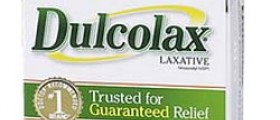
About constipation
Constipation is one of the most common health complaints in the world. It affects almost everyone at some point in life. Constipation involves problems with bowel movement or stool. It may be hard to identify constipation since every person has different bowel habits. Someone passes stool at least once or twice a day and someone does it once every three days. Not only that- bowel habits vary according to age. It is well-known that elderly people pass stool much less frequently as younger people.
Still, constipation can roughly be defined as inability to completely empty the bowels during three or more consecutive days, with stool that is small, hard and very difficult to pass.
It is important to distinguish between acute and chronic constipation. Acute constipation, with recent onset, should be medically evaluated because several serious health conditions are known to cause it. Chronic constipation usually does not indicate a problem that requires urgent medical attention, especially if simple remedies are still able to provide relief.
How to cure acute constipation?
Treatment of acute constipation can include dietary fiber and/or laxatives.
Dietary fiber is a material found in plants that cannot be digested in the human intestines. Fiber provides moisture to the intestines and adds bulk to the stool, so it can be passed more easily. It also makes to stool softer.
Constipation can be prevented by having at least five portions of fruit and vegetables per day and also by including wheat or oat bran and psyllium husk in the daily diet. The same thing could act as the cure for constipation, however, the problem is that most people are not able or willing to eat five portions of fruit and vegetables per day. For that reason, fiber should be provided through appropriate supplements, especially if constipation is something that occurs frequently. Some of the recommended fiber supplements are Metamucil, Konsyl, Citrucel and Equilactin.
As for the laxatives, these medications usually provide almost instant relief from constipation. There are several types of laxatives- lubricant laxatives, which contains mineral oils that coat the stool and make it slippery, emollient laxatives which make the stool softer, hyperosmolar laxatives, which retain the water that is already present in the colon, Saline laxatives, which also soften the stool by drawing the water to it and stimulant laxatives, which stimulate the peristalsis or the way in which the intestinal muscles contract and relax, causing bowel movement. As efficient as they may be, laxatives should not be used too often, since there is a chance they will aggravate the problem with constipation or even cause an addiction.

















Your thoughts on this
Loading...